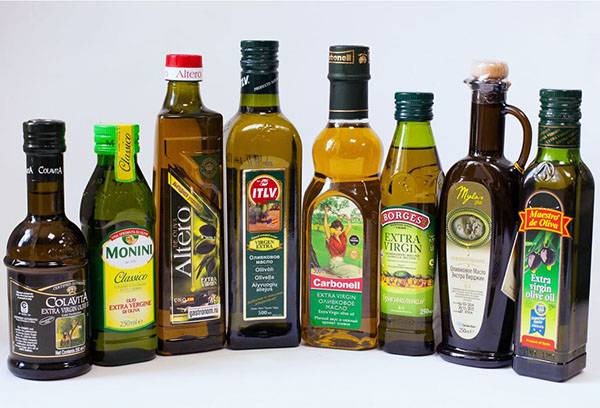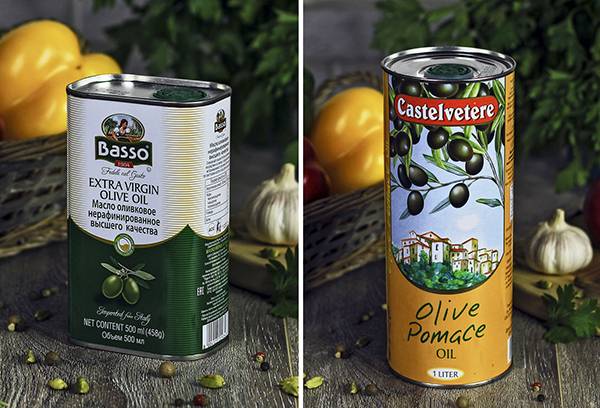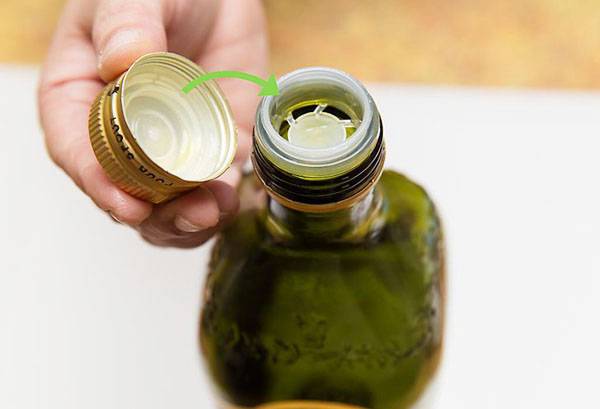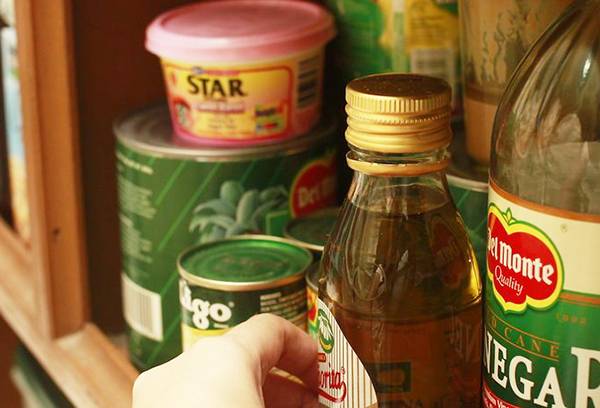How to properly preserve olive oil at home?
Many connoisseurs of healthy eating are wondering: how to properly store olive oil at home? We'll tell you how to preserve the maximum beneficial properties of a product after opening it.
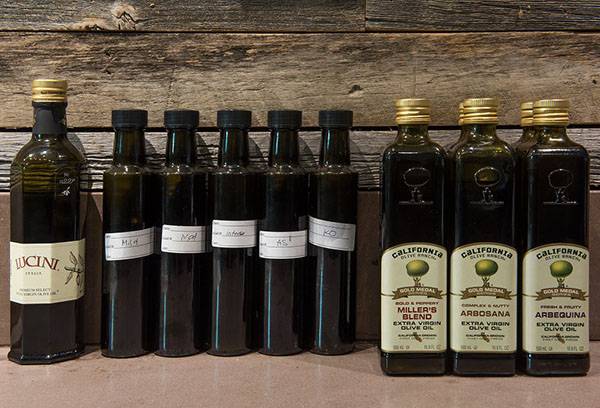
Basic storage rules
Olive oil is a perishable product. The shelf life indicated by the manufacturer on the label usually applies to the unopened product and should not exceed 2 years. According to experts, the shelf life in a closed bottle is no more than 9 months.
After opening the container, the shelf life is significantly reduced and is only 3-4 weeks. After this time, the oil does not become harmful or dangerous to human health, but loses its benefits. To ensure that it does not change its taste and properties even earlier, it is important to comply with storage conditions.
To preserve maximum vitamins and minerals, you need to remember the basic rules.
- The negative impact is caused by sunlight and oxygen, which oxidize the product and change its taste.
- It is not recommended to store olive oil in the refrigerator, and in no case should you resort to freezing it.
- Do not buy oil in reserve: it is better to purchase small quantities that you can use quickly.
Olive oil selection
When choosing olive oil, you should remember that the higher quality the product you purchase, the greater the chance that it will be truly healthy and will not change its taste too quickly.Therefore, when choosing, you should pay attention to several points.
- Best before date. Look for a product that was packaged no earlier than 6 months ago.
- Country of Origin. The leaders among producing countries are Greece, Spain, Italy and Tunisia. Ideally, production and packaging should take place in one country.
- Class. Extra virgin olive oil is usually labeled "Extra Virgin Olive Oil." This is an unrefined, cold-pressed oil that contains a maximum of beneficial substances.
- Appearance. The product should be free of sediment, cloudiness and white flakes, and have a light golden or dark green color. Also, the container in which it is sold must be hermetically sealed.
Sometimes you can find a product on sale that is offered for purchase on tap. It will not necessarily be of poor quality: most often it is oil from large tin cans. However, it is still not recommended to purchase such a product for a simple reason: you do not know how much time has passed since it was opened and in what conditions it was stored. Such oil could have long ago lost its beneficial properties, and, accordingly, there is no point in consuming it.
Selection of containers
Good oil can be found on sale in two packaging options - glass bottles and cans. If you see a product in a plastic bottle in a store, it is recommended to refrain from purchasing it. A high-quality product is never bottled in plastic containers: it is either a fake or a mixture of two vegetable oils - olive and sunflower. There can be no talk of any beneficial properties of such a product.
- Glass bottles
Most often on the shelves we see olive oil in glass.This is, as a rule, a top-class product - it has high quality and the best taste properties. The ideal option is a dark glass container with an airtight lid. This bottle protects the product from exposure to light and provides the longest shelf life - 1.5–2 years. If you purchased olive oil in a transparent bottle, it is recommended to wrap it in foil or dark cloth: due to sunlight, the product may become rancid.
It is very important that the lid closes tightly to prevent oxygen from entering. Of course, when using oil it is impossible to avoid contact with air. That is why it is recommended to purchase small bottles without stocking up.
Advice
If you purchased a large volume, it is recommended to pour the product into a smaller container. In many hardware stores you can find small glass bottles that are perfect for storing oil. Such containers are usually equipped with a sealed stopper that will definitely not let air inside. So the main amount of the product will come into contact with oxygen much less.
- Tin containers
Many manufacturers bottle their product in cans. This oil is usually a class lower than oil in glass, but is also of fairly good quality. Olive oil can also be stored in tin cans for quite a long time - up to 1 year - provided that the container has not been opened.
Tin cans are well suited for long-term storage of the product, but they do not seem very convenient for daily use. Most often, after purchase, the oil is poured into glass containers. If you decide to leave the olive oil in a tin, make sure that the lid is tightly closed after each use.
Temperature
We are all accustomed to the fact that to prolong the freshness of food, it is necessary to store it in the refrigerator. Many people follow the same principle with olive oil - and make a mistake.
Low temperatures lead to the formation of a white precipitate that will disappear when heated. Also, the cooled product often becomes cloudy and changes color. Such metamorphoses negatively affect its taste and nutritional value. In this regard, storing it in the refrigerator, much less in the freezer, is not recommended.
Important!
The optimal temperature for storage is from +14°C to +18°C. Do not expose the product to frequent changes in temperature, otherwise it will quickly acquire an unpleasant bitterness.
Storage space
How long the oil will remain tasty and aromatic directly depends on the place where it is stored. When choosing where to put the bottle, you should take into account that the storage temperature should not exceed +25°C. For the sake of convenience, many people place the product near the stove, which is fundamentally wrong: under the influence of heat, it will quickly lose its taste.
Taking into account all the above facts, we can conclude that the place for storing olive oil should be cool and protected from sunlight. A cabinet with opaque doors, located away from household appliances, is best. If you do not neglect these recommendations, the opened product can be stored for about a month. The shelf life of olive oil in a sealed container is no more than 2 years.

